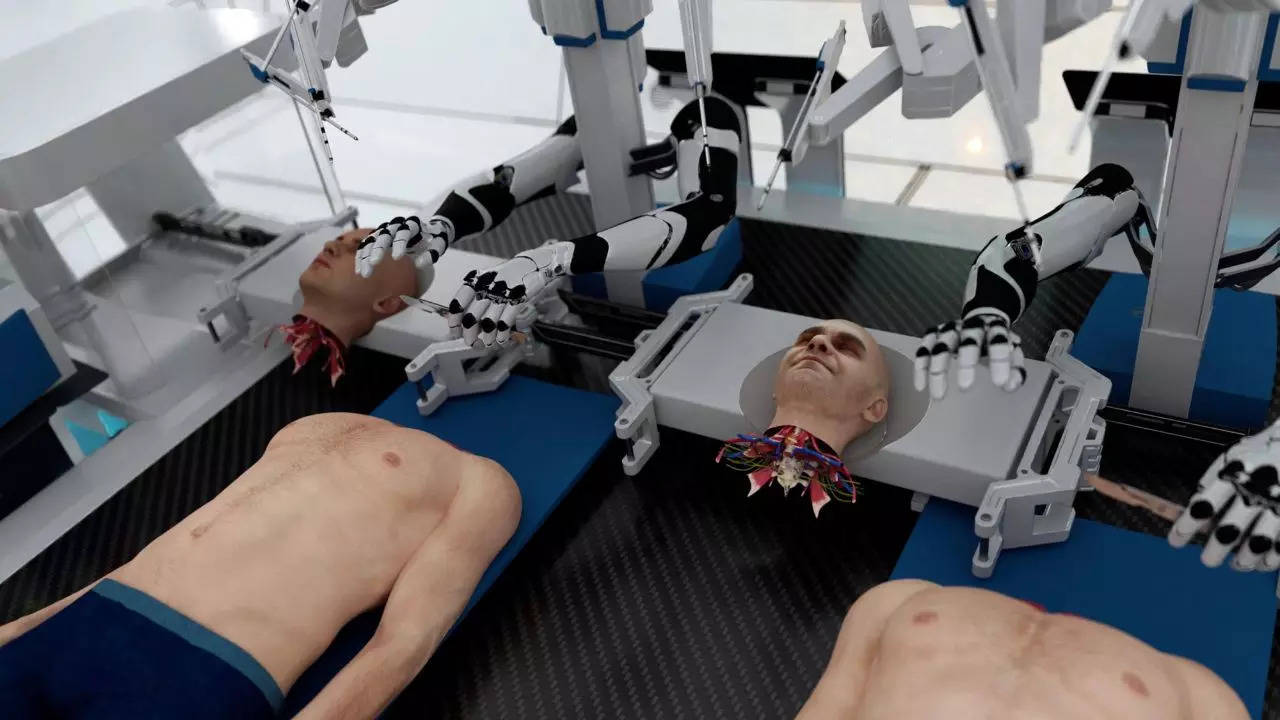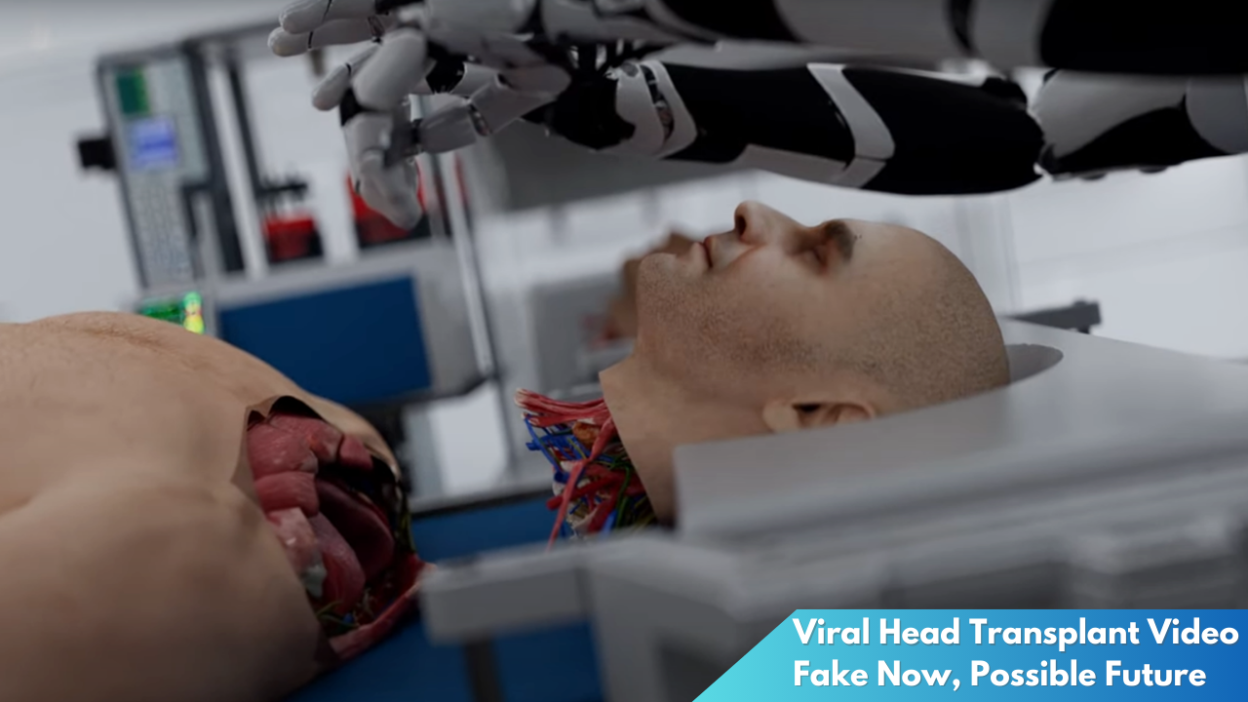The internet was abuzz recently with the circulation of a video purportedly showing a successful human head transplant. The sensational footage garnered millions of views across social media platforms, captivating audiences with the promise of what seemed to be a groundbreaking medical achievement. However, upon closer examination, the viral video has been debunked as an elaborate hoax. This incident has sparked renewed interest and debate among experts regarding the future possibilities of head transplants in the realm of medical science.
Viral Head Transplant Video Exposed as a Hoax
The viral video, which emerged seemingly overnight, depicted a purportedly successful head transplant operation. Complete with dramatic music and convincing visual effects, the footage appeared to show surgeons orchestrating a complex procedure involving the transplantation of a human head onto a donor body. Viewers were quick to share the video across various platforms, fueling speculation and excitement about this alleged medical breakthrough. However, skepticism arose within the scientific community, prompting a closer look into the video’s authenticity.
Upon investigation, experts identified several inconsistencies and discrepancies within the video that ultimately led to its exposure as a hoax. Renowned neurologists and medical professionals pointed out significant inaccuracies in the depicted procedure, such as the absence of critical life-support machinery and unrealistic surgical techniques. Furthermore, meticulous analysis revealed telltale signs of digital manipulation and CGI, confirming suspicions that the video was not a genuine representation of a real operation.
The hoax gained traction partly due to its timing and presentation, exploiting a fertile ground of curiosity and misunderstanding about complex medical possibilities. While the video was eventually debunked, the incident highlighted the challenges faced in discerning factual information from fabricated content in the age of digital media. It also underscored the need for media literacy and critical scrutiny when encountering sensational claims, especially those related to scientific advancements.
Experts Discuss Future Possibilities of Head Transplants
Despite the video being exposed as a fake, the concept of head transplantation remains a topic of interest and debate within the scientific and medical communities. Experts acknowledge that, while the idea is theoretically conceivable, the practical implementation involves a myriad of seemingly insurmountable challenges. The complexities of connecting and reestablishing functional neural pathways, ensuring immune compatibility, and sustaining life during such a procedure are just a few of the hurdles that would need to be addressed.
Pioneers in the field of neurosurgery continue to explore the realm of spinal cord and nerve regeneration, which are crucial components in any potential head transplantation. Advances in these areas hold promise for future breakthroughs that might one day make such procedures viable. However, it is widely accepted that we are still many years, if not decades, away from achieving the necessary technological and medical advancements required to consider head transplants a plausible option.
Ethical considerations also play a significant role in the discussion, as the implications of such surgeries extend beyond the medical sphere. Questions surrounding identity, consciousness, and the essence of personhood are central to the debate. As experts delve deeper into the possibilities, these ethical discussions will be crucial in guiding the responsible exploration of head transplantation and ensuring that scientific curiosity does not outpace ethical judgment.
While the viral head transplant video has been discredited as a hoax, it has reignited discussions about the feasibility of head transplants and the future direction of medical science. As researchers continue to push the boundaries of what is possible in medicine, it is essential to balance scientific innovation with ethical considerations and critical evaluation of information. Although head transplants remain, for now, a subject of science fiction and speculation, ongoing advancements in related fields suggest that the future may hold profound possibilities that could one day turn fiction into reality.



